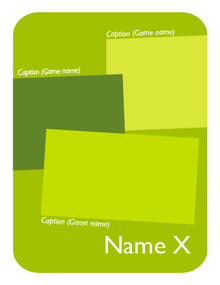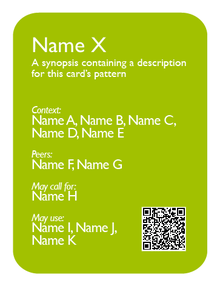Silence

|

| |
| The card's front face | The card's back face |
Candidate Card
Synopsis
| Provoking the perception of the absence of sound. |
Relationships
Contexts:
Emotional Script ![]() .
.
Description
Silence is deeply associated with the Emotional Script, and typically to negative emotions. Naturally, the kind of explorations that we refer to here is are those where the absence of sound is intentional and not a consequence of poor sound design.
Also, it is important to specify, that the meaning of "silence" is more psychological (perceptual) then technical. That is to say, it about the perception of silence, not necessarily the actual absence of sound.
As an example, in Patapon, if the player does not complete a level with success, the menu that follows feels extremely silence, although what is heard is the ambiance of the night, with crickets and other aspects. For the game in stake, characterized by intense sounds during gameplay and menus, that particular composition sounds like Silence and it is very effective in emphasizing the impact of failure.
Limbo is another example, possibly even more paradoxical, where Silence is perceived despite the dominant sound is in fact Noise.
Silence is particularly explored in the survival horror genre, probably because it allows contrast with other relevant sounds. Referring to Silent Hill, Akira Yamaoka, said that "“the lack of sound impresses people more than beautiful music if it’s contrasted" [1]. Also in Penumbra/Amnesia (?), the idea of silence is central to the action where the PC gets frightened by the potential consequence of the the sound of his own actions. In this game, the silence also contributes to emphasize the Breath and Grunts of the PC.
Silence may also be important in the stealth genre, although many times stealth actions are performed in non-silent scenarios, sometimes take profit of the sonic camouflage of the 'environment' [pending].
Examples
[Note: considering that this is still a candidate pattern, more examples then usually are presented, in order to provide a better support for the discussion.]
External Resources
GDC: Grasshopper's Akira Yamaoka Talks Audio Techniques



